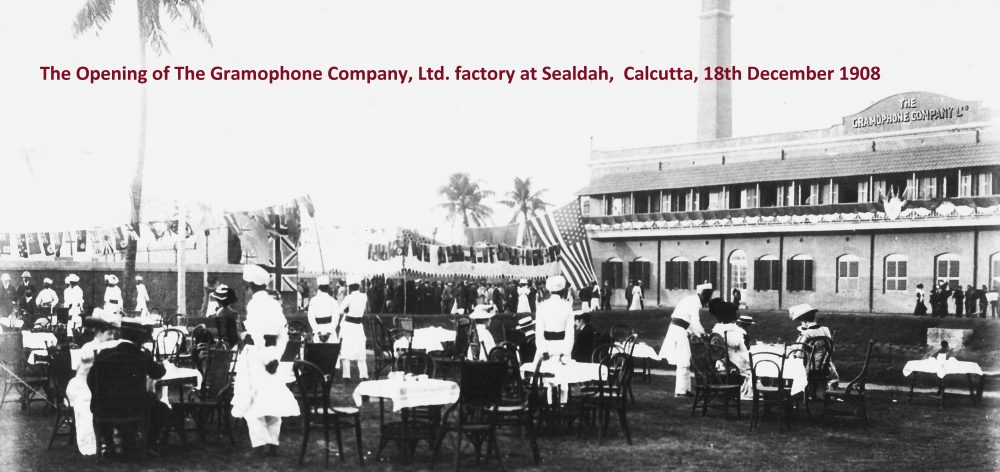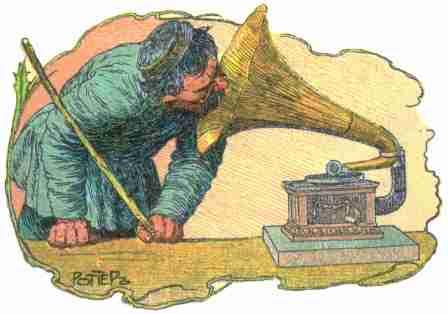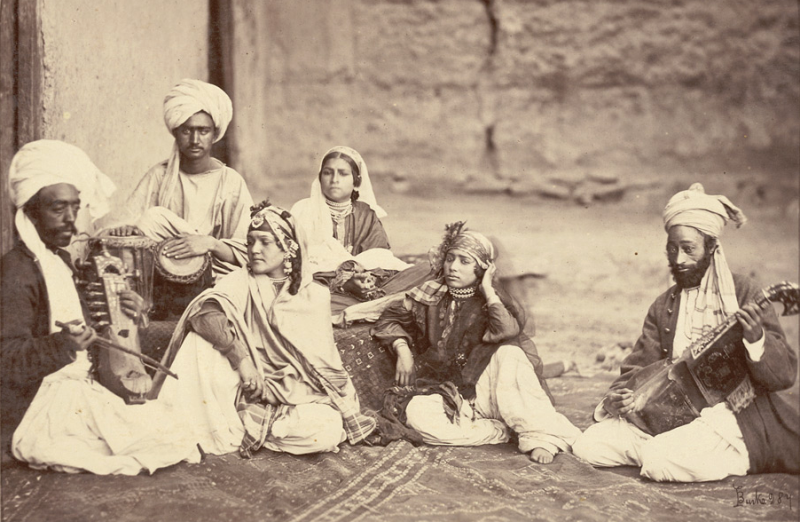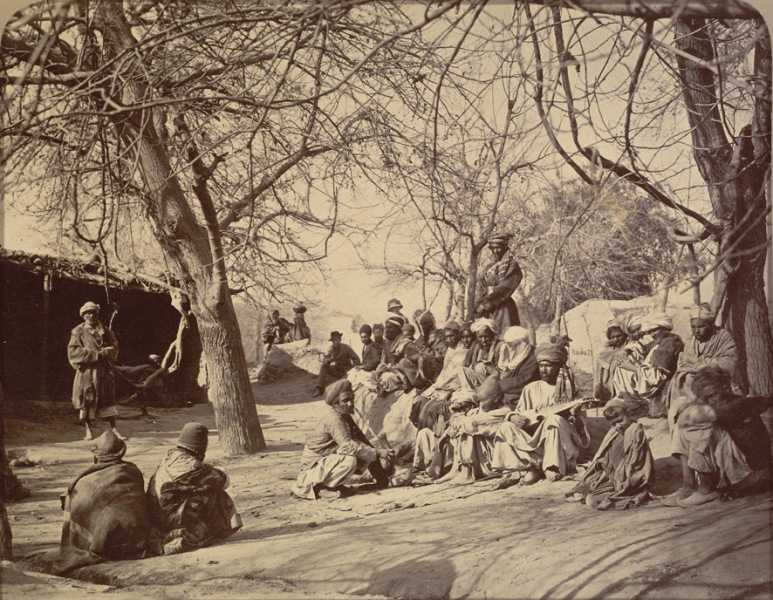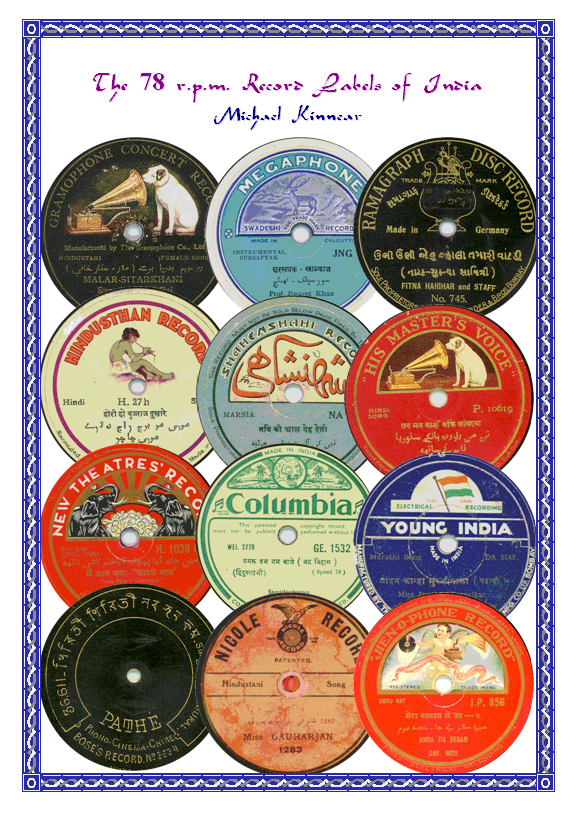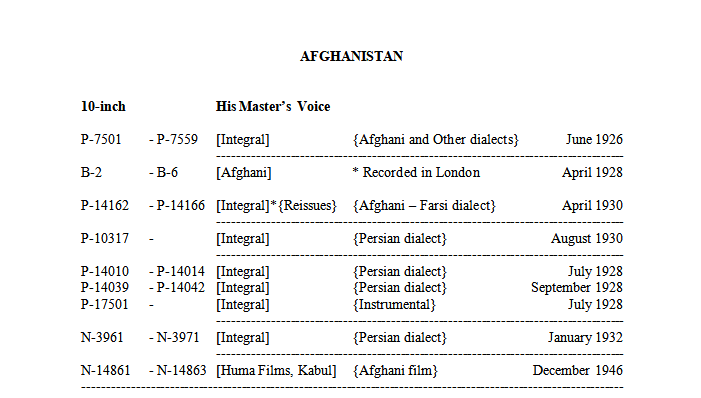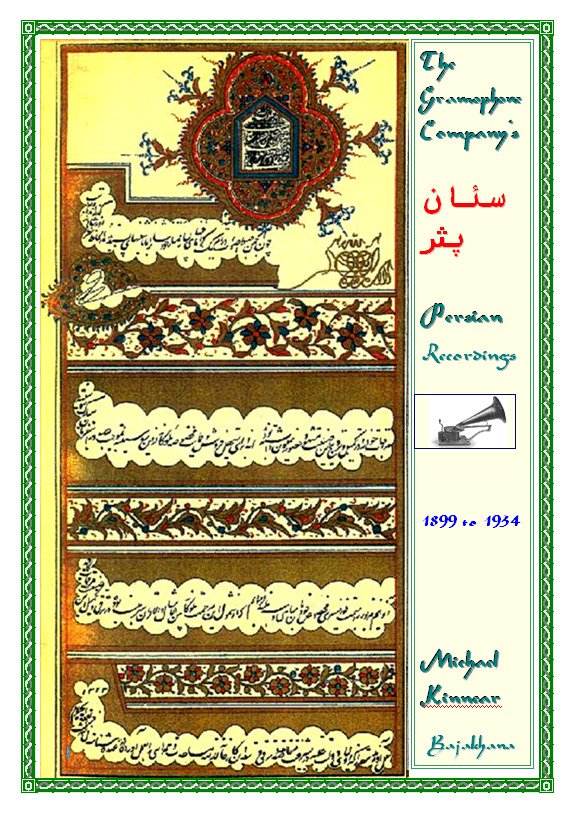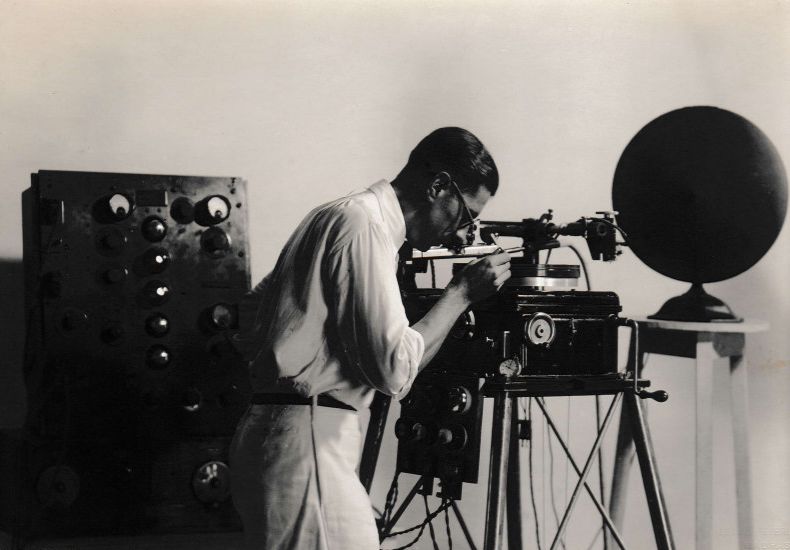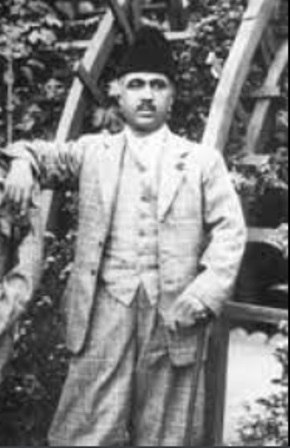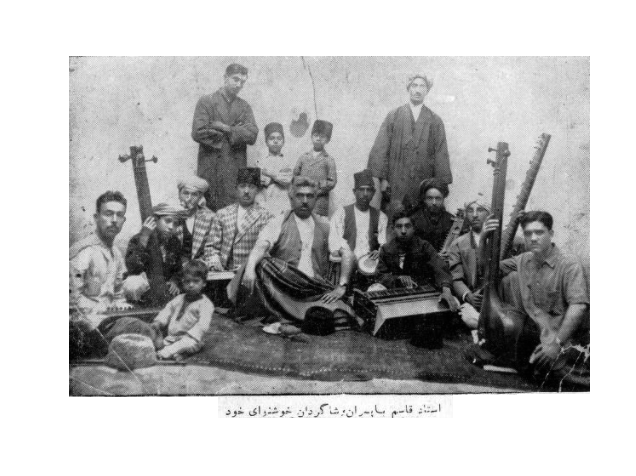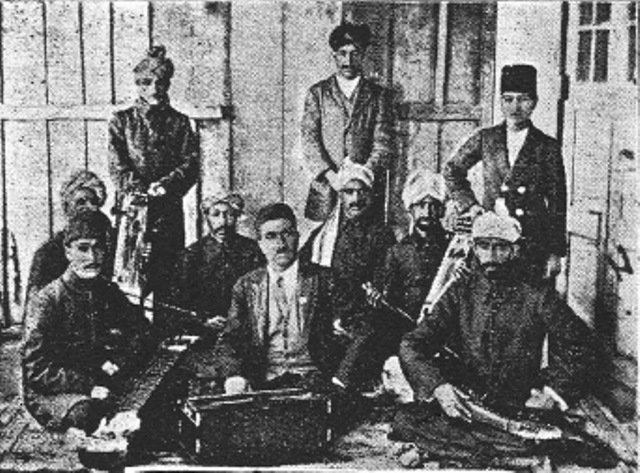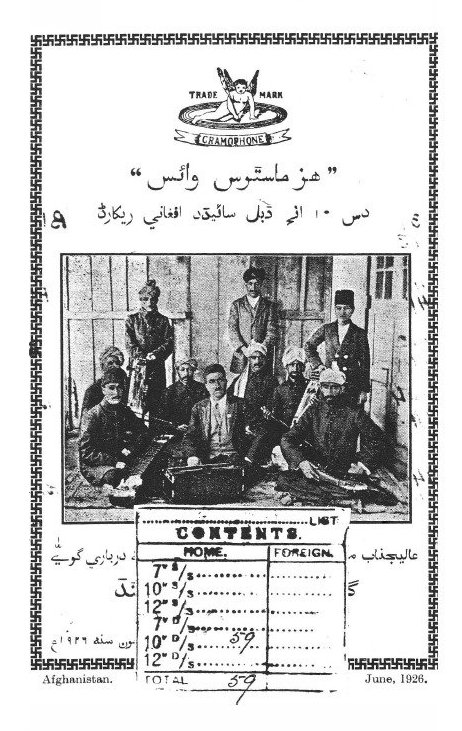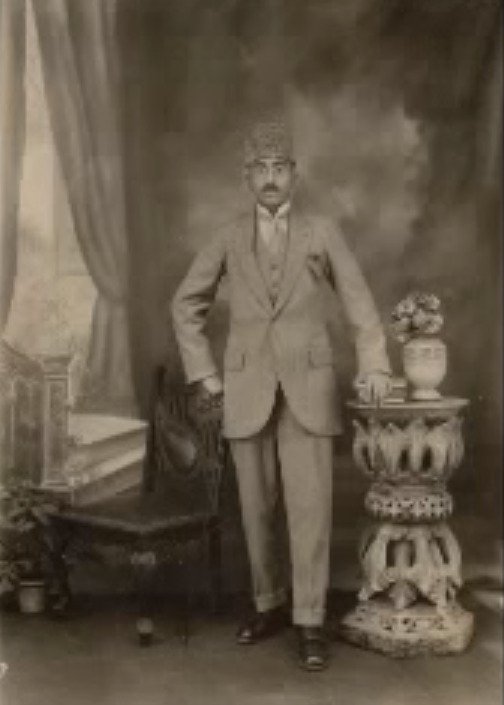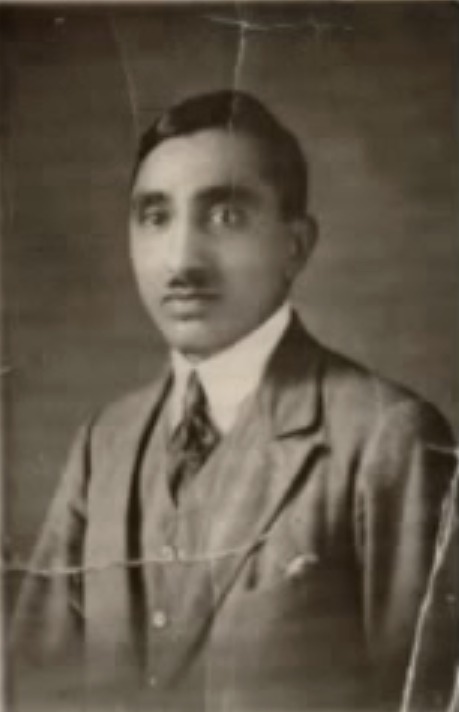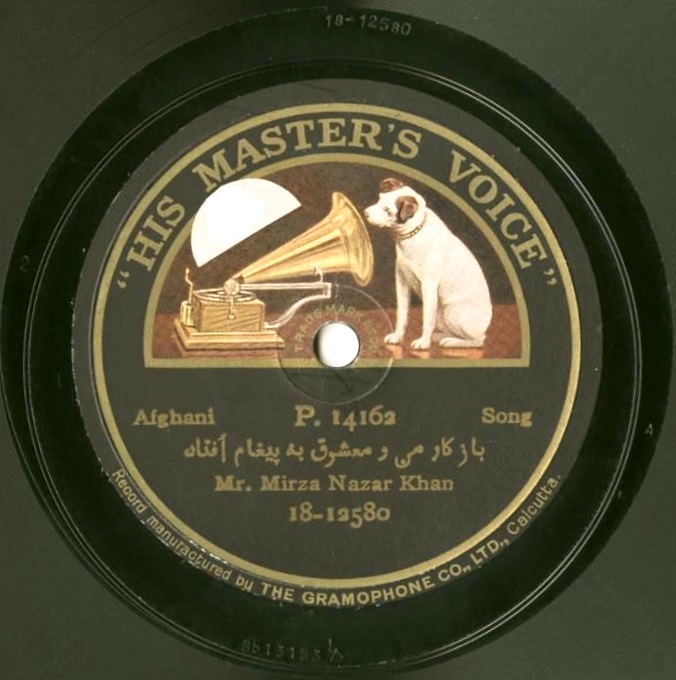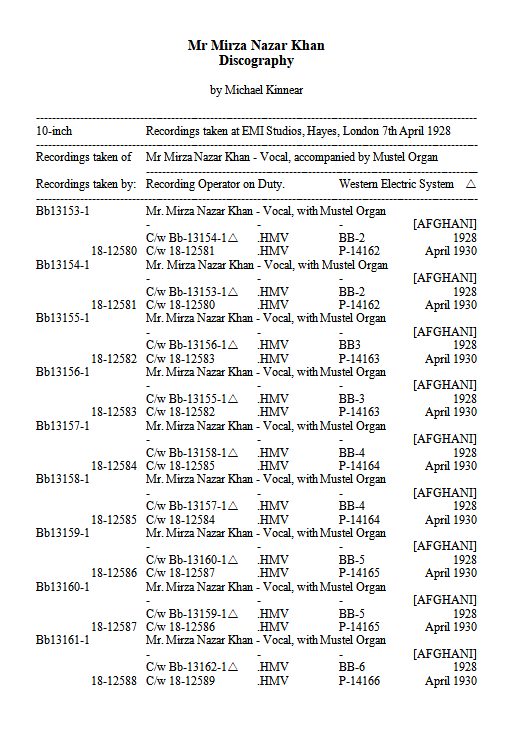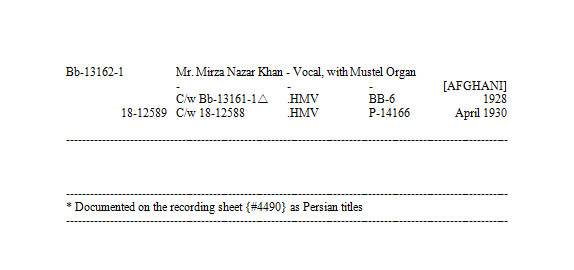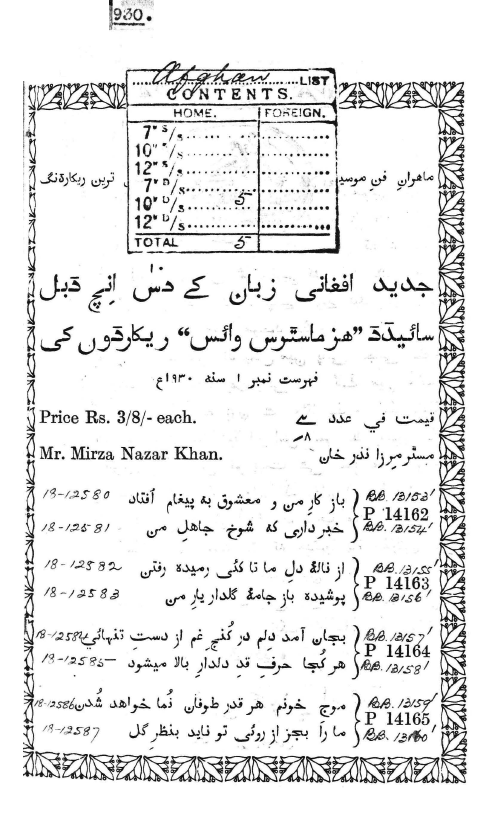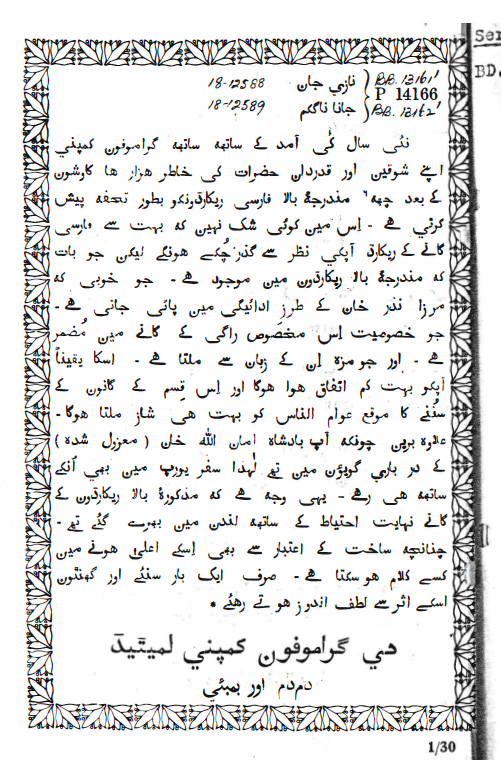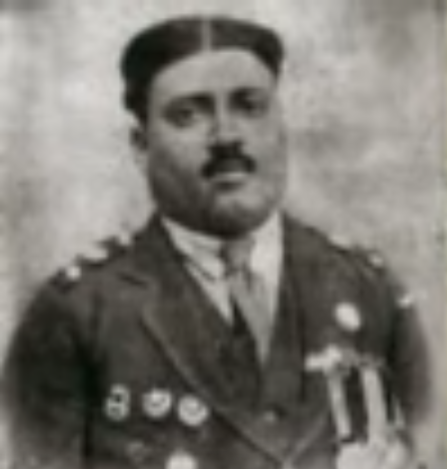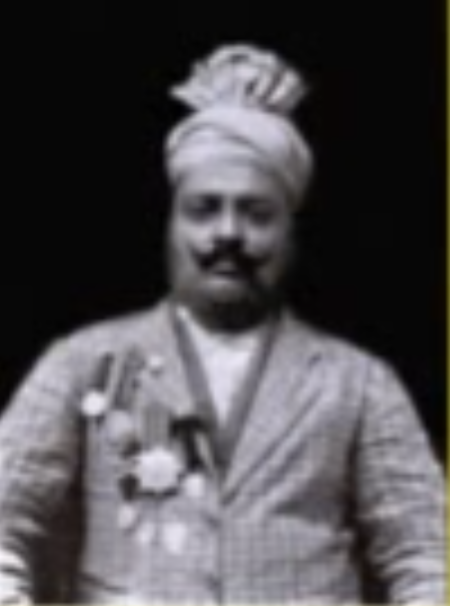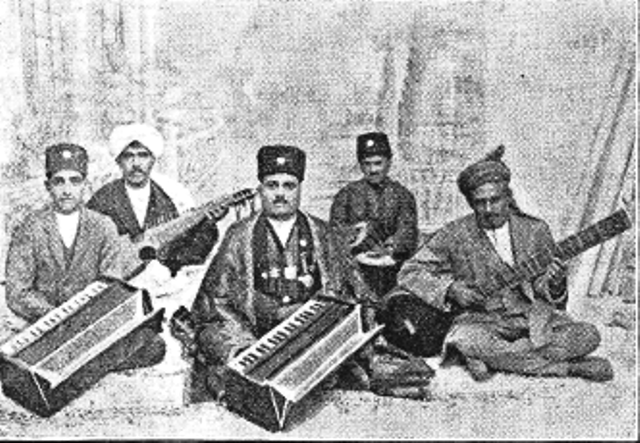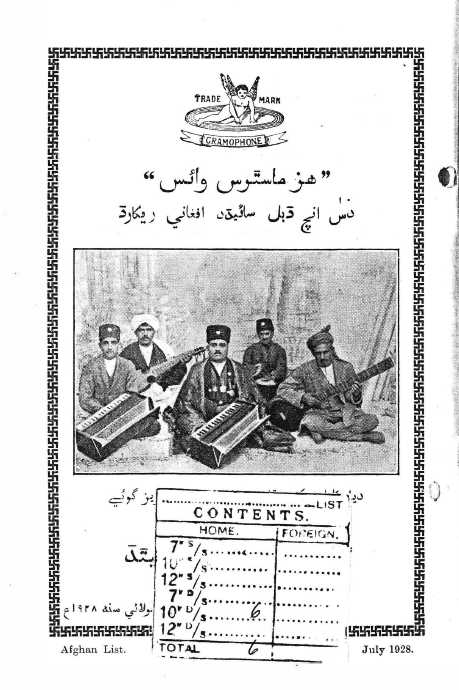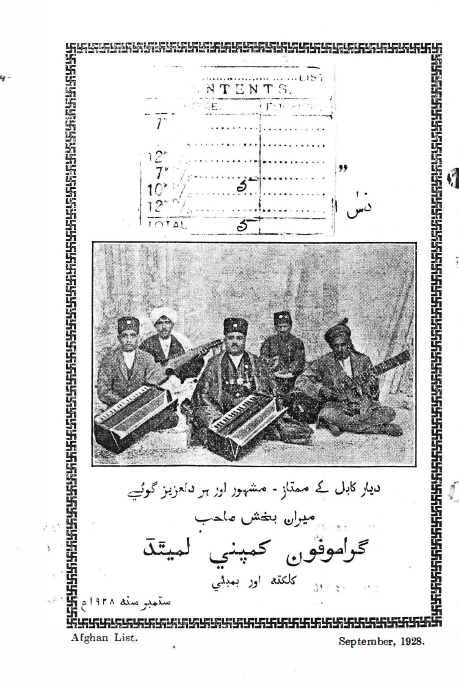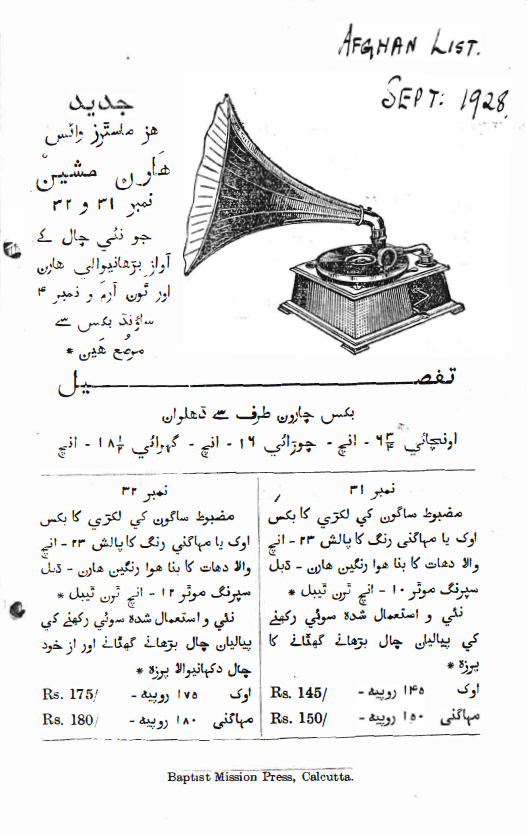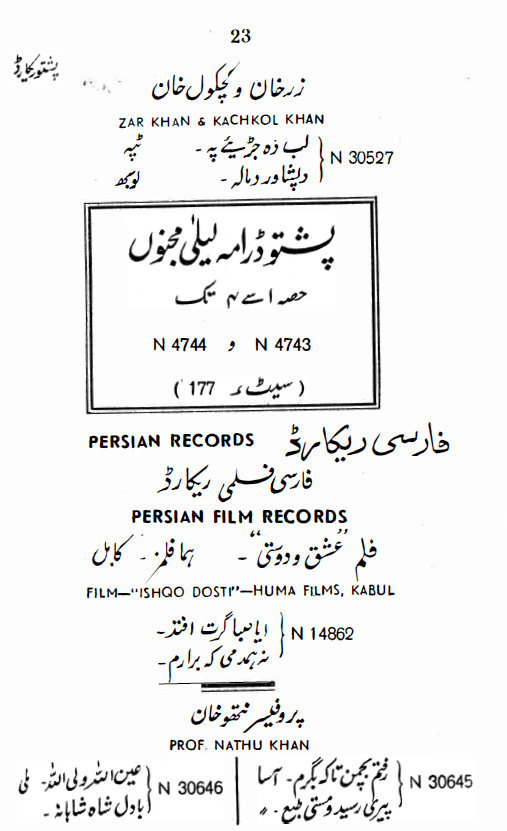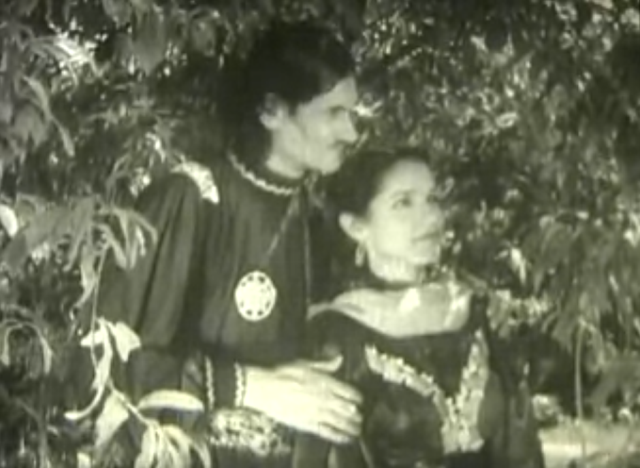AFGHANISTAN – Early Recording Sessions
From: ‘The Michael Kinnear Collection’
Early recording sessions of the Afghanistan repertoire conducted by The Gramophone Company Ltd., at the Hayes studios of The Gramophone Co., Ltd, London and the Indian branch of The Gramophone Co., Ltd.’s recording sessions at Lahore.
Discography of Mr. Mirza Nazar Khan
Unpublished – from the ‘Michael Kinnear Archives’
Photograph of three nautch or professional dancing girls and musicians, taken at Kabul in Afghanistan by John Burke, c.1879-80. Source: The British Library
Photograph showing a group of musicians in a street of Jalalabad in eastern Afghanistan, taken by John Burke in 1878. Source: The British Library
From: ‘The 78 rpm Record Labels of India’
by Michael Kinnear
2nd Edition, Published 2016
SUPPLEMENT
Page 415
Afghani performers Ustad Kassim Afghani, Qurban Ali Afghani and an ensemble known as the Kabul String Band were brought from Kabul to make recordings at Lahore along with other performers from Peshawar in early 1926, from which the P-7501 series were produced.
In 1928, Professor Miran Bakhsh, was brought over from Kabul to Lucknow to make recordings, most of which were issued in the P-14000 series, allocated to Persian, Punjabi, Multani and Pushto recordings. In 1929, a further series of recordings of Prof. Miran Bakhsh were made at Lahore, but not issued until January 1932, in the N-3900 series.
A selection of recordings originally recorded in London during April 1928, by Mirza Nazar Khan, on behalf of the Secretary to the Amir of Afghanistan, pressed at Hayes (B-2 to B-6) were later pressed at Sealdah from copy-stampers, and reissued in the P-14000 series in August 1930.
From 1932 through to 1946, recording sessions of performers from the North-West Frontier Provinces, of Persian, Pushto, Kashmiri, Multani and Afghani repertoires, were essentially organised by The Frontier Trading Co., of Peshawar. The recording sessions were usually held at Delhi or Lahore and issued on the “Banga-Phone” label.
In 1936, Bajaj & Co., originally of Nowshera, but later relocated to Peshawar became an additional provider of Persian, Pushto, Afghani and Gurmukhi recordings, which were issued on the “Gulshan” label. The catalogues of both The Frontier Trading Co., and Bajaj & Co., were acquired by The Gramophone Co., Ltd., in 1947, with the most popular selections being reissued on the “His Master’s Voice” label in 1949.
Note:
Recordings in the P- and N- series are identified as – Persian – on the printed labels, although the Catalogues show the listings as Afghani.
From: ‘The Gramophone Company’s Persian Recordings, 1899-1934′
by Michael Kinnear
PART THREE
[1926 to 1929]
Page 15
With the changing political situation in Persia and Iraq, The Gramophone Company, Ltd., renewed its interest in the region and reorganized its territorial control by sharing resources with the Indian branch office. The head office in London undertook control of the Persian and Iraqi recording sessions, while the Indian branch undertook recording sessions in Lahore of Afghani musicians. During 1925 and early 1926, musicians were brought over from Kabul, Afghanistan, and from Peshawar in the North West Frontier Provinces of India, for recording sessions held at Lahore.
The Gramophone Co., Ltd., engaged Messrs. Ezra M. Hakkak & Co., and Messrs. Hasso Bros., to represent the company in Baghdad, and Messrs. A & V. Martin as agents of the company at Basra. The sales agency for Persia was given to Messrs. P.H. Zeigler & Co., Ltd., via their head office at Manchester, England.
During July 1925, the recording expert, Douglas Ewen Larter, then attached to the Indian branch of The Gramophone Co., Ltd., conducted the recordings sessions at Lahore, which included Akram Khan and Abdulla Khan, described as Persian musicians from Peshawar, and in April 1926, Douglas Larter took several recordings of Kassim Khan Afghani of Kabul.
The recording from these two sessions at Lahore served to create separate catalogues of Persian and Pushto repertoires for the Indian branch, however, these recordings would be more appropriately described as Afghani repertoire. These recordings were catalogued in the main P- series for general releases in India.
An early photo of The Gramophone Co. Ltd.’s Recording Engineer, Douglas Ewen Larter taken in India. Photo from the website: ‘Recording Pioneers’ by Hugo Strötbaum – https://www.recordingpioneers.com/RP_LARTER1.html
Ustad Qasim Afghan (Kassim Afghani)
(1883 – 1956)
Seated in the middle Ustad Qasim Afghan, on harmonia, Ustad Rahim Baksh, next to the rubāb player the child Ustad Musa Qasemi and on the right, tanpura Ustad Yaqoob Qasemi. Source: Photo from the ‘Bibliography of Qasim Afghan and details about Afghanistan’s Music’ by The University of Arizona Libraries and Afghanistan Centre at Kabul University
Ustad Qasim Afghan, born Kabul 1883 and died in 1956 was the leading vocalist in Amanullah Khan’s (King of Afghanistan) royal court. The 78 rpm gramophone records taken for The Gramophone Company Ltd., Calcutta by the recording expert, Douglas Ewen Larter in Lahore, formed part of the Afghanistan List of June 1926. There were forty Ustad Qasim Afghan releases out of the total of fifty-nine under the name of ‘Kassim Afghan’.
Qurban Ali Afghan – Rubāb Player
The above photo is the cover of The Gramophone Co. Ltd.’s Afghanistan June, 1926 catalogue, featuring the rubāb player Qurban Ali in the group of Ustad Qasim Afghan. Qurban Ali is seated on the right with his rubāb instrument. Ustad Qasim Afghan is seated centre.
The 78 rpm gramophone records taken for The Gramophone Company Ltd., Calcutta in Lahore, June 1926, Qurban Ali totalled three rubāb solo listings out of the total of fifty-nine recordings released.
The Gramophone Company Ltd.’s Afghanistan Catalogue
June 1926
P-7501 to P-7559
10 inch His Master’s Voice
![]()
The Gramophone Company Ltd.,’s Afghanistan List, June 1926
Mr. Mirza Nazar Khan
Photo Source: Dr. Asadullah Shour and Dr.Qayum Belal
Photo Source: Dr. Asadullah Shour and Dr.Qayum Belal
A certain Mr. Mirza Nazar Khan, described as the Secretary to the King of Afghanistan, Amanullah Khan, had travelled to London, and made ten recordings during April 1928, at the Hayes studios of The Gramophone Co., Ltd. These recordings were originally entered to the ‘Eastern’ catalogues in the 18-12000 series, and pressed at Hayes in a special series from B-2 to B-6. Copies of the shells of these recordings were later sent to India and issued in April 1930 in the P-14000 series, reserved for Punjabi and related repertoires. Curiously the English pressings are noted as Persian titles, while the Indian pressings were described as Afghani repertoire.
Mr. Mirza Nazar Khan, P-14162
Baz karÚ man va mashough beh peygham oftad
Source: BnF Gallicia
Mr. Mirza Nazar Khan – Discography
The Gramophone Company Ltd.’s Afghanistan Catalogue
April, 1930
P-14162 to P-14166
10 inch His Master’s Voice
Professor Miran Bakhsh
The above photo is the cover of The Gramophone Co. Ltd.’s Afghanistan July, 1928 catalogue, featuring Professor Miran Bakhsh, seated centre.
At about the same time Mr. Mirza Nazar Khan travelled to London during April 1928, and recording at the Hayes studios of The Gramophone Co., Ltd., The Gramophone Co., Ltd., in India had sent the recording expert Robert Beckett to Lahore, relieving Arthur Twine, who had been sent to Teheran. Robert Beckett’s recording sessions at Lahore included several recordings by the vocalist, Prof. Miran Bakhsh from Kabul, which, when issued, were entered to the catalogues in 1928 in the P-14000 series of “His Master’s Voice” releases as Persian repertoire.
Prof. Miran Bakhsh – P-14014
The Gramophone Company Ltd.’s Afghanistan Catalogue
July, 1928
P-14010 to P-14014
P-17501
10 inch His Master’s Voice
The Gramophone Company Ltd.’s Afghanistan Catalogue
September, 1928
P-14038 to P-14042
10 inch His Master’s Voice
The Gramophone Company Ltd.’s Afghani Film Catalogue
December, 1946
N-14861 – N-14863
10 inch His Master’s Voice
Film: Ishq-o-Dosti (Love and Friendship)
Huma Films, Kabul
Lahore, 1946, Language: Dari
ASSOCIATED ARTICLES
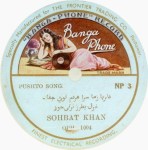 BANGA-PHONE RECORD – Discography. The Frontier Trading Company, Peshawar.
BANGA-PHONE RECORD – Discography. The Frontier Trading Company, Peshawar.
In 1932, The Gramophone Co., Ltd., in India introduced a scheme known as ‘Private Recorders’ whereby local talking machine and record traders could have discs produced by the company, on their own labels. […]
 GULSHAN – Discography. Bajaj & Co., (Nowshera) Peshawar.
GULSHAN – Discography. Bajaj & Co., (Nowshera) Peshawar.Prior to the partition of India in 1947 and the creation of Pakistan (East and West), Lahore was a major recording centre for the North-west region, with the earliest recordings being taken there in 1905 by The Gramophone & Typewriter, Ltd. […]
